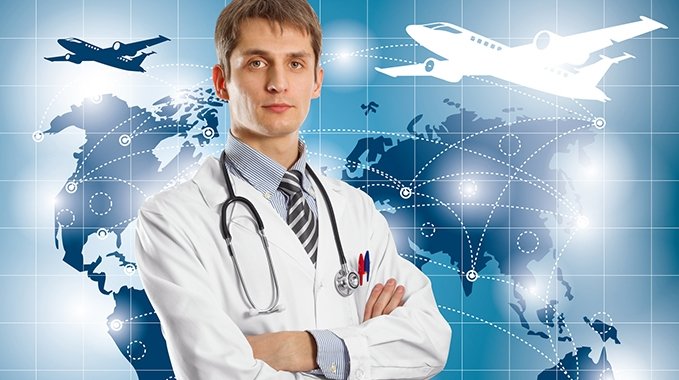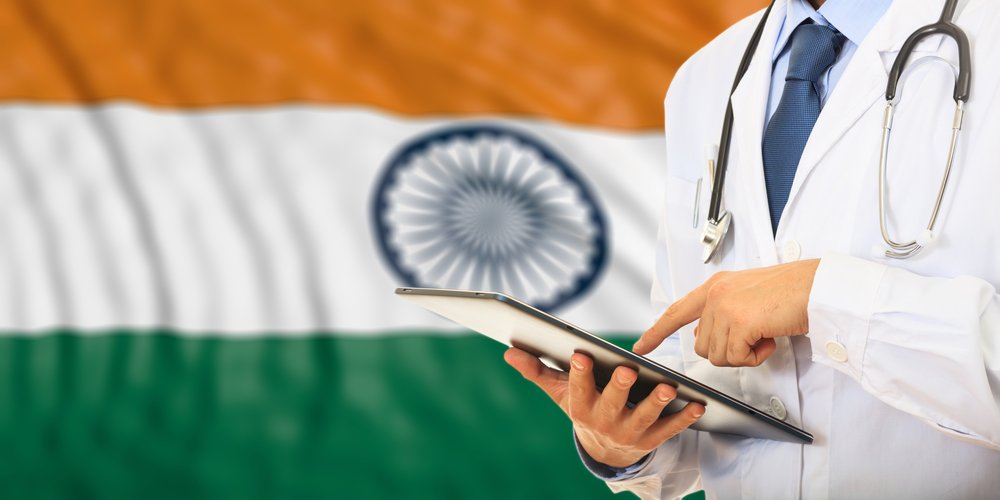
by super | Aug 15, 2025 | Medical Industry, Treatment & Hospitality, Treatments, علاج هند, مدونات الأخبار
Introduction
India is now one of the top destinations for medical tourism, offering cutting-edge healthcare at a fraction of the cost compared to Western countries. At Gulf Corner Medical Tourism Bangalore, we specialize in connecting international patients with the best hospitals and doctors in the country. Whether you need heart surgery, cancer treatment, joint replacement, IVF, or cosmetic procedures, our network covers every medical specialty.
Wide Range of Treatments
We work with leading hospitals in Bangalore and across India to provide specialized treatments for Gulf patients, including cardiology, orthopedics, oncology, neurology, urology, fertility treatments, and organ transplants. Our partner hospitals are equipped with state-of-the-art technology, highly qualified doctors, and internationally accredited facilities that ensure world-class care.
Hassle-Free Medical Travel
From the moment you contact us, we provide free cost estimates, visa assistance, travel planning, and airport pick-up services. Our experienced coordinators ensure you don’t face delays, confusion, or unnecessary expenses. We also arrange for comfortable accommodation near the hospital, making it easier for patients and attendants to commute during treatment.
Focus on Gulf Country Patients
We have extensive experience in assisting patients from Saudi Arabia, Oman, UAE, Iraq, Kuwait, and Qatar. Our team understands the dietary, cultural, and religious needs of Arab patients, ensuring they have access to halal food, Arabic-speaking interpreters, and culturally familiar environments during their stay.
Why Choose Us
With Gulf Corner Medical Tourism Bangalore, you’re not just getting medical assistance – you’re getting a complete care package. We handle the details, so you can focus on healing. Our goal is simple – to ensure you receive the best treatment in India with peace of mind, safety, and compassion.

by super | Aug 15, 2025 | Hospitals Translator, Medical Industry, Medical Tourism Hospitals India, علاج هند, مدونات الأخبار
Introduction: Why Gulf Corner Stands Out
When it comes to medical tourism in Bangalore, Gulf Corner Medical Tourism Bangalore goes beyond expectations. Formerly known in local networks as Al Buraq Medical Tourism, our presence has been strengthened with experience, trust, and a mission to make medical travel to India simple, affordable, and culturally respectful.
Comprehensive Medical Assistance at Your Fingertips
Our team connects you with top-tier hospitals and expert surgeons across India, ensuring you receive world-class care at competitive prices—without compromising on quality. From your initial inquiry through your complete recovery, our dedicated healthcare coordinators manage the process smoothly.
Services Designed for Every Step of Your Journey
Experience a full suite of services that includes:
-
Free online consultations and second opinions
-
Treatment cost estimates from multiple trusted hospitals
-
Assistance with Visa Invitation Letters (VIL)
-
Logistics support like flight bookings and airport transfers
-
Comfortable accommodation, tailored to patient preferences
-
Language support, customizable to your needs, including Arabic interpreters
Affordable, High-Quality Care Tailored to You
We specialize in delivering top medical treatments—such as heart surgeries, orthopedic procedures, IVF treatments, and cancer care—at a fraction of the cost compared to Western countries, often saving 50–80% on treatment costs. All services are transparent, with no hidden fees.
Culturally Aware and Patient-Centered
Understanding that Arab patients value a familiar environment, we ensure:
-
Halal food options
-
Prayer and worship facilities
-
Arabic-speaking staff and coordinators
-
Access to local cultural communities to ease emotional comfort
Your Health, Our Commitment
At Gulf Corner Medical Tourism Bangalore, you’re treated like family. With round-the-clock support and a compassionate approach, we are dedicated to providing you with medical care that blends excellence, affordability, and peace of mind.
مكتب الخليج للسياحة العلاجية في بنجلور – شريكك الموثوق للعلاج في الهند
Introduction – Medical Tourism in Bangalore, India
مقدمة – السياحة العلاجية في بنجلور، الهند
India has become one of the leading global destinations for medical treatment, especially for patients from Gulf countries such as Saudi Arabia, UAE, Qatar, Oman, and Kuwait. With highly qualified doctors, world-class hospitals, and affordable treatment costs, Bangalore is at the heart of this growing medical tourism industry.
Gulf Corner Medical Tourism Bangalore ensures that every patient receives the best possible medical care with full support in Arabic, making their treatment journey comfortable, safe, and successful.
لقد أصبحت الهند واحدة من الوجهات العالمية الرائدة للعلاج الطبي، وخاصةً للمرضى من دول الخليج مثل المملكة العربية السعودية، الإمارات، قطر، عمان، والكويت. وبفضل الأطباء المؤهلين على أعلى مستوى، والمستشفيات العالمية، وتكاليف العلاج المناسبة، تعتبر مدينة بنجلور في قلب صناعة السياحة العلاجية المتنامية.
يضمن مكتب الخليج للسياحة العلاجية في بنجلور حصول كل مريض على أفضل رعاية طبية ممكنة مع دعم كامل باللغة العربية، مما يجعل رحلته العلاجية مريحة وآمنة وناجحة.
Why Choose Gulf Corner Medical Tourism Bangalore?
لماذا تختار مكتب الخليج للسياحة العلاجية في بنجلور؟
-
Experienced Medical Coordinators – Our team has years of experience in handling patients from Arab countries, ensuring smooth communication and personalized care.
-
Top Hospital Network – We are connected with India’s leading hospitals specializing in heart surgery, kidney & liver transplants, cancer treatment, IVF, orthopedics, and more.
-
Affordable Treatment – Patients save up to 70-80% compared to treatment costs in their home countries without compromising quality.
-
Complete Assistance – From visa invitation letters to travel, accommodation, translator services, and post-treatment follow-up, we handle everything.
١. منسقون طبيون ذوو خبرة – فريقنا لديه سنوات من الخبرة في التعامل مع المرضى من الدول العربية، مما يضمن سهولة التواصل ورعاية شخصية.
٢. شبكة المستشفيات الكبرى – نحن على ارتباط بأفضل المستشفيات في الهند والمتخصصة في جراحة القلب، زراعة الكلى والكبد، علاج السرطان، أطفال الأنابيب، جراحة العظام والمزيد.
٣. علاج بتكلفة مناسبة – يوفر المرضى ما يصل إلى 70-80٪ من التكاليف مقارنة ببلدانهم دون المساس بالجودة.
٤. مساعدة شاملة – من خطابات الدعوة للحصول على التأشيرة إلى السفر، والإقامة، وخدمات الترجمة، والمتابعة بعد العلاج، نحن نتولى كل شيء.
Services Offered by Gulf Corner Medical Tourism Bangalore
الخدمات التي يقدمها مكتب الخليج للسياحة العلاجية في بنجلور
-
Free treatment cost estimates from multiple top hospitals in Bangalore.
-
Visa assistance and official invitation letters for patients and their companions.
-
Airport pick-up and drop-off in comfortable vehicles.
-
Booking of hotels, serviced apartments, or guesthouses near hospitals.
-
24/7 translator support in Arabic and other languages.
-
Assistance with medical reports, appointments, and treatment scheduling.
-
تقدير مجاني لتكلفة العلاج من عدة مستشفيات كبرى في بنجلور.
-
المساعدة في الحصول على التأشيرة وخطابات الدعوة الرسمية للمرضى ومرافقيهم.
-
استقبال وتوصيل من وإلى المطار بسيارات مريحة.
-
حجز الفنادق أو الشقق المخدومة أو بيوت الضيافة بالقرب من المستشفيات.
-
دعم مترجم على مدار الساعة باللغة العربية ولغات أخرى.
-
المساعدة في التقارير الطبية، والمواعيد، وتنظيم جدول العلاج.
Specialized Treatments Available
العلاجات المتخصصة المتوفرة
-
Heart & Cardiac Surgery – جراحة القلب
-
Kidney & Liver Transplants – زراعة الكلى والكبد
-
Cancer Treatment & Oncology – علاج الأورام والسرطان
-
IVF & Fertility Solutions – أطفال الأنابيب وعلاج العقم
-
Orthopedic & Joint Replacement – جراحة العظام واستبدال المفاصل
-
Neurology & Spine Surgery – جراحة المخ والأعصاب والعمود الفقري
-
Cosmetic & Plastic Surgery – الجراحة التجميلية
Cultural Comfort for Arab Patients
الراحة الثقافية للمرضى العرب
We understand the importance of cultural and religious comfort during medical travel. Gulf Corner Medical Tourism ensures:
-
Halal food availability.
-
Arabic-speaking staff and translators.
-
Prayer facilities in hospitals and accommodations.
-
Nearby Arab Street in Bangalore for shopping and food.
ندرك أهمية الراحة الثقافية والدينية أثناء السفر للعلاج. يضمن مكتب الخليج للسياحة العلاجية:
-
توفر الطعام الحلال.
-
موظفون ومترجمون يتحدثون العربية.
-
أماكن للصلاة في المستشفيات والإقامات.
-
قرب شارع العرب في بنجلور للتسوق والطعام.
How to Start Your Medical Journey in India
كيف تبدأ رحلتك العلاجية في الهند
-
Contact us via phone, WhatsApp, or email with your medical reports.
-
Receive free treatment cost estimates and recommendations.
-
Get your visa invitation letter and travel plan.
-
Arrive in Bangalore and start your treatment with full support.
١. تواصل معنا عبر الهاتف أو الواتساب أو البريد الإلكتروني مع تقاريرك الطبية.
٢. احصل على تقدير مجاني لتكلفة العلاج وتوصيات الأطباء.
٣. احصل على خطاب دعوة للتأشيرة وخطة السفر.
٤. تعال إلى بنجلور وابدأ علاجك بدعم كامل.

by super | Aug 15, 2025 | Hospitals Translator, Medical Industry, Medical Tourism Hospitals India, علاج هند, مدونات الأخبار
Introduction – Why India is the Preferred Choice for Medical Treatment
India has become one of the top destinations in the world for medical tourism, especially for patients from Gulf countries such as Saudi Arabia, Oman, Iraq, Kuwait, Qatar, and the UAE. The combination of highly qualified doctors, advanced medical technology, and affordable treatment costs makes India a global hub for healthcare. In cities like Bangalore, patients receive world-class care in hospitals that match international standards. Gulf Corner Medical Tourism Bangalore has been at the forefront of connecting international patients with the best doctors and hospitals in India, ensuring a smooth and stress-free treatment journey.
Why Arab Patients Prefer India for Treatment
Arab patients choose India for various reasons:
-
Highly Qualified Doctors: Many Indian doctors are trained internationally and have years of experience in complex surgeries and treatments.
-
Advanced Medical Infrastructure: Indian hospitals are equipped with the latest diagnostic tools, robotic surgery systems, and modern operation theatres.
-
Affordable Costs: Patients can save up to 70–80% compared to treatment in Europe, the USA, or the Middle East.
-
Cultural & Dietary Comforts: Availability of Halal food, Arabic translators, and prayer facilities makes the stay more comfortable.
-
Short Waiting Periods: Most treatments can be arranged quickly without long waiting lists.
Gulf Corner Medical Tourism – Your Trusted Partner
Gulf Corner Medical Tourism Bangalore specializes in providing end-to-end medical travel assistance to patients from the Gulf, Africa, Russia, Bangladesh, and other countries. From the moment you decide to travel for treatment, their expert team handles everything—medical cost estimates, visa invitation letters, travel arrangements, doctor appointments, hospital coordination, accommodation, and Arabic translator support. They ensure that you and your family feel supported at every step of the journey.
Treatments Available in Bangalore for International Patients
Gulf Corner Medical Tourism assists patients with a wide range of treatments, including:
-
Cardiology & Heart Surgery – Bypass surgery, valve replacement, angioplasty, ESMR therapy.
-
Orthopedics – Joint replacement, spine surgery, sports injury treatment.
-
Neurology & Neurosurgery – Brain tumor surgery, stroke management, spinal disorders.
-
IVF & Fertility – Advanced reproductive treatments, sperm retrieval, and embryo transfer.
-
Cancer Care – Chemotherapy, radiation therapy, robotic surgery.
-
Urology & Kidney Transplant – Renal care, dialysis, minimally invasive surgeries.
-
Ophthalmology – Cataract surgery, LASIK, corneal transplant.
Step-by-Step Process for Treatment in India with Gulf Corner Medical Tourism
-
Contact & Case Review – Send your medical reports to the team for an initial evaluation.
-
Get Cost Estimates – Receive a treatment plan with cost estimates from multiple hospitals.
-
Visa Assistance – Get a visa invitation letter for you and your attendant.
-
Travel & Accommodation Arrangements – Airport pickup, hotel booking, or serviced apartments near hospitals.
-
Treatment & Recovery – Full coordination with doctors and medical staff until complete recovery.
-
Post-Treatment Support – Follow-up appointments, medication guidance, and assistance for safe travel back home.
Why Bangalore is the Ideal City for Your Medical Journey
Bangalore, known as the “Silicon Valley of India,” is not only a hub for IT but also a leader in advanced healthcare. The city offers:
-
A large number of internationally accredited hospitals.
-
Multilingual staff including Arabic-speaking coordinators.
-
Pleasant weather for quick recovery.
-
Easy flight connectivity with Gulf countries.
Facilities for Arab & International Patients
-
Arabic Translators – For smooth communication with doctors.
-
Halal Food Options – Prepared according to Islamic dietary requirements.
-
Prayer Rooms & Mosques Nearby – For religious convenience.
-
Cultural Sensitivity – Respect for customs, traditions, and privacy.
Cost Advantage – Save More with World-Class Treatment
One of the biggest advantages of coming to India for treatment is cost savings. For example:
-
Heart Bypass Surgery: Costs up to 80% less than in the Gulf.
-
Joint Replacement: A fraction of the cost compared to the USA or Europe.
-
IVF: Advanced fertility treatments at affordable rates.
Final Words – Your Health, Our Priority
Choosing the right partner for your treatment in India can make all the difference. Gulf Corner Medical Tourism Bangalore ensures that patients not only receive the best medical care but also feel supported and cared for throughout their stay. With their experience, network, and dedication, they have become the preferred choice for Arab and international patients seeking treatment in India.
If you are planning to travel to India for treatment, connect with Gulf Corner Medical Tourism today and take the first step towards your recovery with confidence.

by super | Aug 15, 2025 | Health & Wellness, Hospitals Translator, Medical Industry, Qualified Doctors, Treatments, علاج هند, مدونات الأخبار
Introduction
When it comes to healthcare, quality and trust matter the most. Gulf Corner Medical Tourism Bangalore brings together world-class medical care, affordable treatment packages, and personalized support for patients traveling to India. We have built strong partnerships with India’s leading hospitals to ensure you receive top-tier care for any medical condition.
Advanced Technology and Expertise
Our partner hospitals use the latest medical technology, including robotic surgery, advanced imaging, and minimally invasive techniques. The doctors we connect you with are internationally trained specialists with years of experience in complex surgeries and treatments. Whether it’s heart bypass surgery, organ transplantation, or cancer care, you can trust our network for the highest standards.
Affordable Without Compromise
Medical treatment in India can save you up to 70-80% compared to Western countries, without compromising on quality. We provide free cost estimates from multiple hospitals so you can choose the most suitable option. Our transparent process ensures there are no hidden charges, and patients know exactly what to expect.
End-to-End Assistance
We guide you at every step – from visa application, airport transfers, hospital admission, to discharge and recovery support. Our multilingual staff, including Arabic interpreters, ensures smooth communication between patients and medical teams. We also help families explore local attractions during recovery periods.
Your Health, Our Priority
At Gulf Corner Medical Tourism Bangalore, we treat every patient with dignity, care, and compassion. Our commitment is not only to provide world-class medical care but also to make you feel at home during your treatment in India.

by super | Aug 15, 2025 | Medical Industry, Qualified Doctors, علاج هند, مدونات الأخبار
Visiting a foreign country for the first time, especially for medical treatment, can be a daunting and overwhelming experience. There are numerous uncertainties, including estimating the total cost of treatment, securing a Visa Invitation Letter (VIL), arranging travel and accommodation, finding the right doctor or hospital, and overcoming language barriers. Without proper guidance, patients may face delays, stress, and even risks to their health. This is where Gulf Corner Medical Tourism Bangalore steps in as a trusted partner. With years of experience in assisting patients from Gulf countries, Africa, Russia, and beyond, our dedicated team ensures a smooth, safe, and stress-free medical journey in India.
One of the primary advantages of working with a medical tourism company like Gulf Corner Medical Tourism Bangalore is access to India’s top hospitals and doctors. We have a strong network of leading healthcare providers specializing in treatments such as liver and kidney transplants, cancer care, IVF, cardiology, orthopedics, and more. Our team coordinates online consultations and second opinions before patients even arrive in India, enabling them to make informed decisions about their treatment options. This pre-arrival planning saves valuable time, ensures better preparation, and increases the chances of successful outcomes.
Another significant benefit is our commitment to complete travel and accommodation arrangements. From booking flights and arranging airport transfers to securing comfortable and budget-friendly lodging, Gulf Corner Medical Tourism Bangalore handles every detail. Our accommodations are strategically located near hospitals and essential services, such as pharmacies, diagnostic centers, supermarkets, and currency exchange facilities. We understand that a patient’s comfort plays a vital role in their recovery, so we ensure they have access to all necessary amenities, including kitchens, laundry services, and Wi-Fi.
Language barriers can often make patients feel isolated in a foreign country. To address this, we provide skilled Arabic-speaking translators and interpreters who stay with patients throughout their treatment journey. In addition to medical support, we also offer moral and emotional assistance, making sure our guests feel cared for and respected. We even help organize sightseeing trips to India’s cultural landmarks, such as the Taj Mahal and historical sites, so patients and their families can create positive memories during their stay.
Perhaps the most reassuring aspect of our services is that they are 100% free of cost for patients, with no hidden charges. At Gulf Corner Medical Tourism Bangalore, we treat every patient like family and walk with them every step of the way until they have fully recovered and returned home. Our mission is not just to provide healthcare coordination but to ensure every patient’s journey in India is safe, successful, and filled with compassion.

by super | Aug 15, 2025 | Medical Industry, Qualified Doctors, Treatment & Hospitality, علاج هند, مدونات الأخبار
Learn how Gulf Corner Medical Tourism Bangalore helps you save up to 80% on treatment costs in India while ensuring quality healthcare, comfort, and complete support for Arab patients.
cheap medical treatment India, علاج في الهند رخيص, Bangalore medical tourism, Gulf Corner Medical Tourism Bangalore, أفضل دكتور في الهند, علاج العرب في الهند, مستشفيات بنجلور
Introduction:
Medical tourism in India has grown rapidly, attracting patients from the Gulf, Africa, and beyond. The key reasons include world-class doctors, state-of-the-art hospitals, and treatments at a fraction of the cost compared to Western countries. Gulf Corner Medical Tourism Bangalore is at the forefront of making this opportunity accessible and stress-free for Arab patients.
Affordable Treatment with High Standards:
India offers advanced medical procedures, including organ transplants, cancer care, cardiac surgery, IVF, and orthopedic treatments, at significantly reduced prices. The savings can be as high as 70–80% compared to treatment costs in the GCC. Despite the lower costs, the quality of care remains exceptional, thanks to internationally accredited hospitals and experienced specialists.
Comprehensive Patient Support:
We go beyond simply booking your hospital appointments. Our services include visa assistance, airport pickup, hotel booking, translator services, and help in finding halal food. This complete support system ensures you can focus solely on your treatment and recovery.
Cultural Understanding:
One of the biggest challenges for international patients is adjusting to a new culture. Gulf Corner Medical Tourism Bangalore bridges this gap by offering services tailored to Arab patients’ needs. From privacy considerations to Arabic-speaking staff, we make sure you feel respected and understood throughout your stay.
Conclusion:
Choosing India for your treatment can be life-changing, and choosing Gulf Corner Medical Tourism Bangalore as your facilitator ensures a smooth, safe, and successful medical journey. With our expertise, you can enjoy world-class healthcare in a culturally familiar environment while saving money and time.






